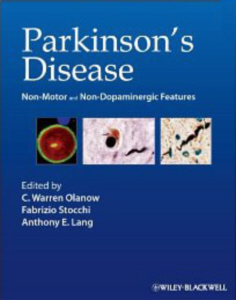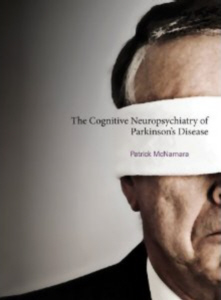.gif) VIARTIS
|
||||||
|
PARKINSON'S DISEASE |
||||||
|
|
||||||
|
|
PARKINSON'S DISEASE NEWS
|
|
||||
|
SEPTEMBER 2011
19th September 2011 - New research SAFINAMIDE CLINICAL TRIAL RESULTS Movement Disorders [2011] Sep 12 [Epub ahead of print] (F.Stocchi, R.Borgohain, M.Onofrj, A.H.Schapira, M.Bhatt, V.Lucini, R.Giuliani, R.Anand) Complete abstract Safinamide is a new type of drug being developed for Parkinson's Disease. Safinamide is believed to have both dopaminergic and non-dopaminergic actions, including the inhibition of monoamine oxidase B (MAO-B) and inhibition of glutamate release. It is intended to be added on to the existing use of L-dopa or dopamine agonists. In people with early Parkinson's Disease taking a dopamine
agonist, the effect of 200mg safinamide was found to be little different from
that of a placebo. The effect of 100mg safinamide was found to be significantly
better than a placebo. In previous clinical trials, after six months, once daily
dosages of 50mg to 100mg Safinamide improved
18th September 2011 - New book PARKINSON'S DISEASE : NON-MOTOR AND NON-DOPAMINERGIC FEATURES C.Warren Olanow (Editor), Fabrizio Stocchi (Editor), Anthony Lang (Editor)
15th September 2011 - News release IRON CHELATOR FOR PARKINSON'S DISEASE
A clinical trial is to be carried out with the iron chelator Deferiprone (Ferriprox)
in Parkinson�s Disease. The clinical trial is being sponsored by Parkinson's UK.
It has been claimed in medical studies that iron accumulates in the brains of
people with Parkinson's Disease, and that iron can therefore cause further
deterioration. Deferipone is
There are a number of weaknesses in the theory behind the method used : (1) The claims made in studies that there is an accumulation of iron in Parkinson's Disease are not matched by the details of the results of those studies. When the results are age controlled, most people with Parkinson's Disease have only a mild accumulation of iron or no iron accumulation at all. (2) Iron is absolutely essential for the formation of dopamine, due to it being a cofactor for the formation of L-dopa. A restriction or lowering of iron intake can therefore be seriously counterproductive. (3) When L-dopa formation is low as occurs in Parkinson's Disease, iron, as an essential cofactor for L-dopa formation, can accumulate in order to overcome that deficiency. It is a compensatory mechanism rather than a cause of Parkinson's Disease. (4) If iron accumulation caused Parkinson's Disease, those people with Hereditary Haemochromatosis, which causes an accumulation of iron, would all have Parkinson's Disease. Yet in a study of people with Hereditary Haemochromatosis, none of them had Parkinson's Disease. (5) When iron was used therapeutically in Parkinson's Disease, all of the people tested reduced rather than increased their Parkinson's Disease symptoms. In order to refer to this article on its own click here.
4th September 2011 - New research MALNUTRITION IS PREVALENT IN PARKINSON'S DISEASE Nutrition Reviews [2011] 69 (9) : 520-532 (J.M.Sheard, S.Ash, P.A.Silburn, G.K.Kerr) Complete abstract Malnutrition has been found to occur in up to 24% of people with Parkinson's Disease. Up to 60% of people with Parkinson's Disease have been found to be at risk of malnutrition. However, the studies assessed vary greatly in their figures. People with Parkinson's Disease may be at higher risk of malnutrition because of the symptoms associated with Parkinson's Disease and the side effects of the medication used to manage it. A decline in nutritional status is associated with many adverse outcomes related to health and quality of life. The researchers consequently suggest that it is important to screen for malnutrition at the time of Parkinson's Disease diagnosis.
3rd September 2011 - New book THE COGNITIVE NEUROPSYCHIATRY OF PARKINSON'S DISEASE Patrick McNamara
|
||||||
.gif) |
||||||
| �2006-2011 Viartis | ||||||
| [email protected] | ||||||
 Parkinson's
Disease symptoms, and reduced "off" time when added on to the use of existing
Parkinson's Disease treatments. However, the reduction in "off" time in
comparison to the use of a placebo was minimal. The increase in "on" time beyond
that of a placebo was only 40 minutes for 50mg safinamide, and 50 minutes for
100mg safinamide. The side effects of the clinical studies were not disclosed.
Higher dosages did not have any beneficial effect.
In order to refer to this article on its own
Parkinson's
Disease symptoms, and reduced "off" time when added on to the use of existing
Parkinson's Disease treatments. However, the reduction in "off" time in
comparison to the use of a placebo was minimal. The increase in "on" time beyond
that of a placebo was only 40 minutes for 50mg safinamide, and 50 minutes for
100mg safinamide. The side effects of the clinical studies were not disclosed.
Higher dosages did not have any beneficial effect.
In order to refer to this article on its own
 Publisher's
description : Over 50% of Parkinson's patients suffer symptoms unrelated to the
dopamine system. The dopaminergic features of Parkinson's Disease are now well
controlled in most patients. Clinicians are increasingly focused on
non-dopaminergic symptoms, which can lead to disability and severely restricted
quality of life in patients. A world-class Editorial team has assembled a
stellar roster of scientists and clinicians to present the clinical importance
of non-dopaminergic pathology in Parkinson's Disease. Significant research is
examined and its relevance to clinical practice, both now and in the future, is
assessed.
Publisher's
description : Over 50% of Parkinson's patients suffer symptoms unrelated to the
dopamine system. The dopaminergic features of Parkinson's Disease are now well
controlled in most patients. Clinicians are increasingly focused on
non-dopaminergic symptoms, which can lead to disability and severely restricted
quality of life in patients. A world-class Editorial team has assembled a
stellar roster of scientists and clinicians to present the clinical importance
of non-dopaminergic pathology in Parkinson's Disease. Significant research is
examined and its relevance to clinical practice, both now and in the future, is
assessed.
 an
iron chelator, which is able to remove excess iron from the body. It is
consequently being assessed to see if it can reduce an accumulation of iron in
the brains of people with Parkinson's Disease.
The long term aim of the therapy, if the clinical trial is successful, is to
slow down the progression of Parkinson�s disease.
As this is a pilot study, the theory at present is completely untested. For more
information go to
an
iron chelator, which is able to remove excess iron from the body. It is
consequently being assessed to see if it can reduce an accumulation of iron in
the brains of people with Parkinson's Disease.
The long term aim of the therapy, if the clinical trial is successful, is to
slow down the progression of Parkinson�s disease.
As this is a pilot study, the theory at present is completely untested. For more
information go to
 Dopamine,
whose deficiency causes Parkinson's Disease, is often falsely assumed to be
inevitably produced unless toxicity interferes with its formation. However,
dopamine is made from dietary substances, including vitamins, minerals and
L-tyrosine, which is usually obtained from high protein foods. For more
information go to the
Dopamine,
whose deficiency causes Parkinson's Disease, is often falsely assumed to be
inevitably produced unless toxicity interferes with its formation. However,
dopamine is made from dietary substances, including vitamins, minerals and
L-tyrosine, which is usually obtained from high protein foods. For more
information go to the
 Publisher's
description : Patients with Parkinson's Disease suffer most visibly with such
motor deficits as tremor and rigidity and less obviously with a range of
nonmotor symptoms, including autonomic dysfunction, mood disorders, and
cognitive impairment. The neuropsychiatric disturbances of Parkinson's Disease
can be as disabling as its motor disorders, but they have only recently begun to
be studied intensively. The author offers a cognitive theory that accounts for
both their neurology and their phenomenology. He offers a review of
current knowledge of neuropsychiatric manifestations of Parkinson's Disease such
as cognitive deficits, personality changes, speech and language symptoms, sleep
disorders, apathy, psychosis, and dementia.
Publisher's
description : Patients with Parkinson's Disease suffer most visibly with such
motor deficits as tremor and rigidity and less obviously with a range of
nonmotor symptoms, including autonomic dysfunction, mood disorders, and
cognitive impairment. The neuropsychiatric disturbances of Parkinson's Disease
can be as disabling as its motor disorders, but they have only recently begun to
be studied intensively. The author offers a cognitive theory that accounts for
both their neurology and their phenomenology. He offers a review of
current knowledge of neuropsychiatric manifestations of Parkinson's Disease such
as cognitive deficits, personality changes, speech and language symptoms, sleep
disorders, apathy, psychosis, and dementia.